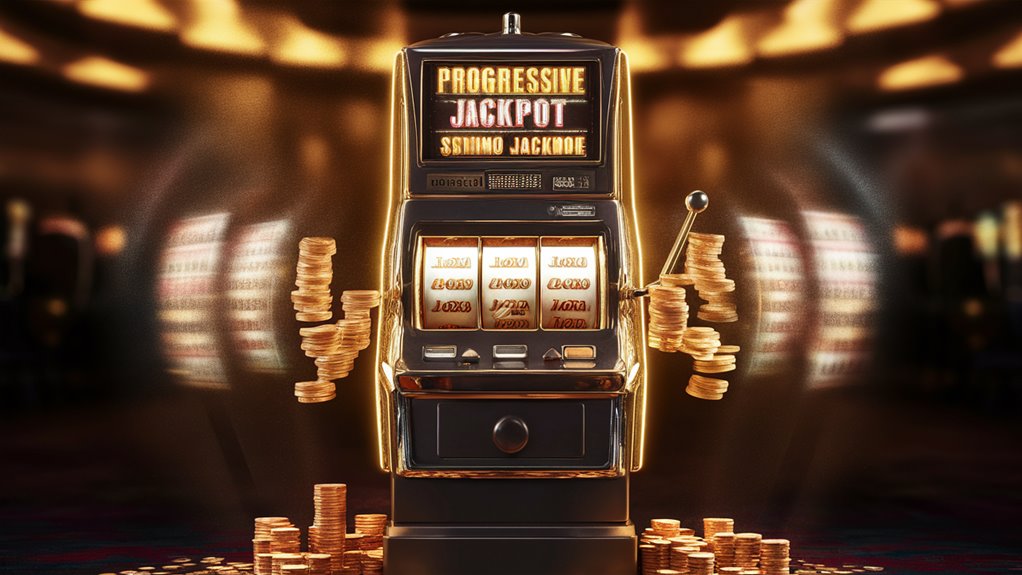The Best Gambling Books Every Player Should Read
For players seeking to elevate their gambling knowledge and skills, several foundational texts stand as essential reading. "Theory of Poker" by David Sklansky remains the cornerstone of poker strategy, offering crucial insights into game theory fundamentals and strategic thinking. "Thinking in Bets" by Annie Duke revolutionizes decision-making approaches under uncertainty, providing valuable frameworks applicable across all gambling disciplines.
Mathematical Foundations and Strategy
"Mathematics of Poker" by Bill Chen delivers comprehensive probability analysis and mathematical concepts crucial for advanced gameplay. The groundbreaking "Beat the Dealer" by Edward Thorp transformed blackjack strategy forever, introducing card counting systems and optimal play techniques that remain relevant today.
Psychology and Bankroll Management
Understanding the psychological aspects of gambling proves equally important through "The Psychology of Gambling" by Edmund Bergler, which explores the mental elements affecting player decisions. "Professional Gambling" by Stuart Perry provides critical bankroll management strategies and professional approaches to game selection.
These authoritative works represent the evolution of gambling strategy, combining mathematical precision with psychological insight. Each text builds upon decades of research and practical application, offering readers a comprehensive foundation for developing advanced gambling expertise.
#
Must-Read Books for Card Players

# Must-Read Books for Card Players
Essential Strategy Books for Card Game Masters
Knowledge is power in the world of card games, and several authoritative books can transform amateur players into strategic masters.
The cornerstone text "Theory of Poker" by David Sklansky breaks down crucial concepts including pot odds, expected value, and deception tactics applicable across all card variants.
Advanced Game-Specific Guides
Stanford Wong's "Professional Blackjack" delivers comprehensive coverage of basic strategy, card counting systems, and bankroll management techniques essential for serious players.
For poker enthusiasts, Dan Harrington's acclaimed trilogy "Harrington on Hold'em" provides tournament-tested strategies that consistently perform at high-stakes tables.
Psychological and Mathematical Resources
Mike Caro's "Book of Tells" remains the definitive guide for reading physical and behavioral patterns in opponents.
Advanced players seeking deeper mathematical understanding should study Bill Chen's "Mathematics of Poker," which explores game theory optimization and complex probability calculations.
These advanced texts require dedicated study but deliver measurable improvements in strategic decision-making and long-term profitability.
Key Concepts Covered:
- Strategic fundamentals and probability analysis
- Advanced card counting techniques
- Tournament-specific poker strategies
- Behavioral analysis and opponent reading
- Mathematical game theory applications
- Bankroll management principles
- Professional-level decision making
Essential Strategy and Game Theory

Essential Game Theory and Strategic Analysis for Gaming
Foundational Mathematical Frameworks
Game theory and strategic decision-making form the bedrock of successful gaming analysis.
Von Neumann's groundbreaking work in "Theory of Games and Economic Behavior" established the mathematical foundations crucial for understanding optimal strategy and expected value calculations. This framework remains fundamental for analyzing complex gaming scenarios.
Advanced Strategic Principles
David Sklansky's strategic analysis revolutionized gaming theory through practical applications in "The Theory of Poker."
His work on the fundamental theorem and decision-making under uncertainty transcends specific games, providing universal principles for strategic gaming. These concepts prove invaluable across multiple gaming variants.
Modern Mathematical Analysis
Edward Thorp's revolutionary approach in "Beat the Dealer" demonstrates how rigorous mathematical analysis can unlock winning strategies.
His work pioneered systematic betting systems and probability optimization, establishing core principles for modern gaming strategy. The text exemplifies how mathematical precision can reveal exploitable patterns in gaming mechanics.
Practical Applications and Theory Integration
Mason Malmuth's comprehensive framework bridges theoretical concepts with practical implementation.
His work on systematic approach development and mathematical expectation provides essential tools for strategic decision-making. The integration of probability theory with practical gaming applications creates a robust foundation for advanced strategy development.
Strategic Implementation
Successful gaming strategy requires mastering:
- Probability assessment
- Risk management systems
- Mathematical modeling
- Decision theory application
- Strategic position analysis
These components form an integrated approach to optimal gaming strategy, enabling data-driven decision-making across various gaming contexts.
Gambling Psychology Books

Essential Books on Gambling Psychology
Understanding the Mental Game
Psychological mastery in gambling separates elite players from casual bettors. While mathematical probability remains crucial, the psychological foundation determines long-term success.
"The Psychology of Gambling" by Edmund Bergler stands as the definitive text for understanding core gambling behaviors and decision-making mechanisms.
Advanced Decision-Making Literature
"Thinking in Bets" by Annie Duke represents a breakthrough in gambling psychology literature. This masterwork bridges poker strategy with real-world decision science, offering proven frameworks for navigating uncertainty.
Duke's methodology helps readers identify and overcome psychological barriers that typically impair gambling performance.
Behavioral Economics and Risk Management
"Why Smart People Make Big Money Mistakes" by Gary Belsky and Thomas Gilovich delivers critical insights into behavioral economics and its impact on gambling decisions.
The book's analysis of loss aversion and sunk cost fallacy provides essential tools for maintaining emotional equilibrium during high-stakes situations. These psychological principles extend beyond gambling to enhance overall risk assessment and decision-making capabilities under pressure.
Key Psychological Concepts
- Loss aversion and risk tolerance
- Decision-making under uncertainty
- Cognitive bias recognition and management
- Emotional control strategies
- Risk assessment frameworks
These foundational texts construct a comprehensive understanding of gambling psychology, equipping readers with professional-grade tools for enhanced performance and risk management.
Bankroll Management and Money Skills

Essential Bankroll Management Strategies for Smart Gambling
Understanding Bankroll Management Fundamentals
Effective bankroll management represents the cornerstone that distinguishes successful players from those who consistently deplete their gambling funds.
Mathematical frameworks and proven strategies provide the foundation for protecting and expanding your gambling capital through disciplined betting approaches.
Recommended Resources for Mastering Money Management
The Mathematics of Poker by Bill Chen stands as a definitive guide, offering comprehensive insights into optimal betting strategies and statistical risk assessment methods.
Edwin Silberstang's The Winner's Guide to Casino Gambling provides essential frameworks for calculating appropriate wager sizes based on total bankroll and variance factors.
Advanced Bankroll Protection Techniques
Professional Gambling by Stuart Perry outlines critical bankroll requirements across various casino games while introducing the fundamental concept of risk of ruin.
The proven strategy of maintaining wagers below 2% of total bankroll helps ensure longevity during inevitable downward variance periods.
Strategic Risk Management and Volatility Control
Gambling 102 by Michael Shackleford delivers crucial insights into establishing effective stop-loss limits and managing positive variance streaks.
The text provides detailed calculations for determining optimal bankroll sizes based on specific game characteristics, including house edge and volatility metrics.
Key Principles for Long-Term Success
- Maintain strict adherence to predetermined betting limits
- Calculate appropriate bankroll requirements for chosen games
- Implement robust risk management strategies
- Monitor and adjust for game-specific variance factors
- Establish clear win goals and stop-loss thresholds
Historical Gambling Literature

Historical Gambling Literature: A Comprehensive Guide
Classical Gambling Texts and Their Modern Relevance
The evolution of gambling literature spans centuries, with foundational works offering enduring wisdom for modern players. Charles Cotton's "The Complete Gamester" (1674) stands as a cornerstone text, delivering crucial insights into early approaches to games of chance and skill.
Landmark Mathematical Contributions
Gerolamo Cardano's "Book on Games of Chance" (1564) marked the first systematic mathematical analysis of gambling probability. This groundbreaking work laid the foundation for modern bankroll management and statistical approaches.
Edward Thorp's "Beat the Dealer" (1962) later revolutionized blackjack strategy through computer-verified mathematical models.
Essential Reading for Strategic Gamblers
Modern gambling theory builds upon historical foundations while incorporating contemporary analytics. Key texts include:
- "The Theory of Poker" by David Sklansky
- "The Education of a Poker Player" by Herbert O. Yardley (1957)
- Mathematical analysis texts on probability and game theory
These works demonstrate how successful gambling consistently requires:
- Mathematical precision
- Psychological understanding
- Disciplined gameplay
- Strategic bankroll management
The integration of historical gambling principles with modern analytical methods provides players with a comprehensive framework for success across various gaming formats.


